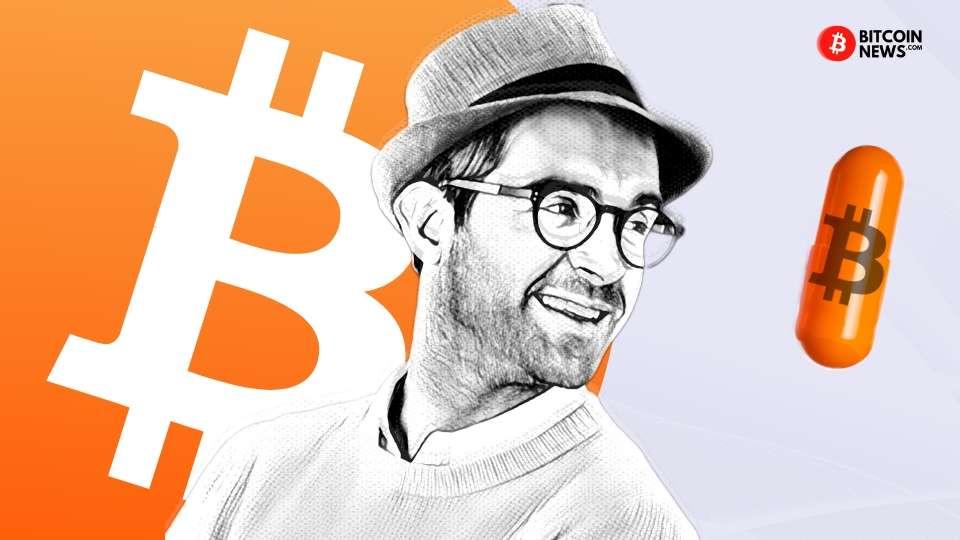I just returned from a Bitcoin conference in Brazil. It was a fabulous experience with high energy and fantastic people.
I came to develop a love for economics long before I discovered Bitcoin, so as such, as much as I love Bitcoin (and I do), I feel like more of an economist first and foremost, so that influences my perspective in this article. I also spent many years working in sales, and while in sales, I developed a personal philosophy around being upfront about the trade-offs with customers about the product I am selling. This too influences my perspective here.
As I feel like more of an economist and straightforward salesman (if there ever was such a thing), I may be free to point out quirky falsehoods that I heard some of my fellow bitcoiners repeating over the course of the conference.
Myth 1: Bitcoin is “unconfiscatable”
I have heard bitcoiners repeat this again and again. It’s imprecise in a potentially dangerous way. First, the word (as far as I can tell) does not exist in English outside of Bitcoin circles.
What bitcoiners tend to mean by “unconfiscatable” is that he who holds the private keys controls (and can spend) the bitcoins. So a nefarious actor, whether a state actor or a common thief, indeed has a much more difficult time confiscating your bitcoins from you if you hold the private keys in a secure way. But a financial asset requiring a nefarious actor to go to greater lengths to confiscate (steal) it is a very different thing to say than that it cannot be confiscated.
I pointed this out to one bitcoiner who personally disseminated the myth himself, but he doubled down, arguing that stealing is different than confiscating. One can get into semantics, but we are essentially talking about the same thing: taking by force, if necessary, what one would prefer not to surrender to the taker. If a bad actor can hold a gun to someone’s head and get information from them (including private keys), it is untrue to say that the information cannot be confiscated/stolen/appropriated/seized etc. Pick your own verb here; the essence is the same.
What a monetary system based on public key cryptography (including Bitcoin) offers in this regard is that it requires that whoever may seek to confiscate that asset has to go to greater lengths to snag it in the first place. In the case of the nation state, it doesn’t look good for the state’s own image to be going door-to-door, forcing millions of people to cough up private keys that may exist only within their heads. It just doesn’t fit the “benevolent provider of social welfare” image that the state promotes about itself. Indeed, we are entering a new era in which the logic of violence is shifting. Technological advancements in cryptography (on net) favor the individual, offering a radical form of property rights. (For more on this, see The Sovereign Individual by James Dale Davidson and William Rees-Mogg).
For the record, I do understand that for newbies, Bitcoin is a difficult concept to wrap one’s head around, and as such, it sometimes takes a fair bit of oversimplification to get the bigger, general points across. So explaining the concepts in a precise way may overwhelm the listener. But to the extent possible, be precise. And when conversing between seasoned bitcoiners, let’s drop the “unconfiscatable” nonsense. It isn’t accurate at all, as Nick (unknown surname), who goes by Twitter handle @NobodyCaribou, can attest. Nick was responsible for distributing donated bitcoins to peaceful Canadian truckers and was largely successful before (as Reason.tv reported) “police came to his home, seized… and took control of the bitcoin”.
Myth 2: Bitcoin is not volatile
I can’t think of any good excuse for this one. Do I really have to show a Bitcoin price history chart to prove my point? I witnessed a proud Bitcoin evangelist last week tell the owner of a local restaurant that because the price of Bitcoin was (on that day) roughly about the same price as it was about one week before when that merchant produced a food menu with prices denominated in Bitcoin that “See! Bitcoin isn’t volatile!”
Let’s reflect on that. As the restaurant owner is new to Bitcoin, what if he acts on that information? What if he decides to sell much of his life savings to buy bitcoins – assuming this passionate Bitcoin evangelist knows what he is talking about? And what if the price drops significantly thereafter just as it did in the aftermath of both the Terra-LUNA or FTX collapses? Bitcoin has a history of events that have led to its price plummeting just afterwards – at least in the short term.
If you believe in a product and believe in being straightforward with people, then you should be upfront about the risks. A more appropriate disclosure would look something more like this:
“Bitcoin is highly volatile. But due to a number of important problems that it solves, its fixed supply that cannot be tampered with, the fact that we are presently in a bear market and that we are still in the early adoption phase of its life, it is highly probable that its value will be a lot higher than it is now – at least over the long-term. In fact, it could drop significantly tomorrow; I don’t expect it to, but it could. If you’d like to buy any significant volumes, I recommend dollar cost averaging (DCA). I also suggest holding for the long-term and not freaking out when you see it dip… In fact, let me show you a quick chart to demonstrate the volatility but also how well it has performed over time.”
You get the point. It’s OK to evangelize if that’s your thing. Just be careful to help people understand what they are getting into.



